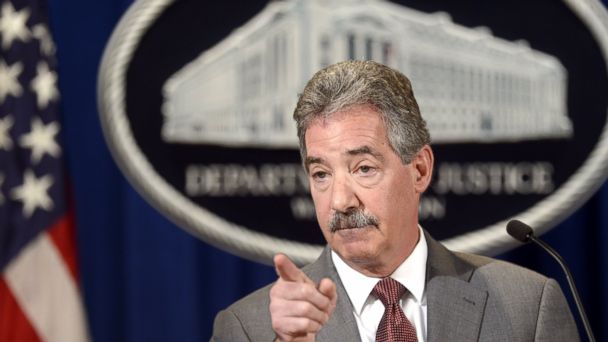Broadened Clemency Rules Could Affect Thousands of Inmates

(Photo Credit: Susan Walsh/AP Photo)
WASHINGTON - Prison inmates serving sentences for nonviolent crimes have been offered broader guidelines for seeking clemency, the Department of Justice announced today.
The new rules, only eligible to prisoners who have already served 10 years behind bars, will focus on people who would be handed a lesser punishment if they were charged with the same crime today. It's unclear how many of the nation's 216,000 federal inmates will be affected.
The decision is part of a broader effort by the Obama administration to reduce the U.S. prison population by turning back the use of harsh sentences for drug crimes. The administration has also sought to reverse a legacy of racial disparity in convictions. For example, the use of crack cocaine has historically resulted in longer sentences than for using its powdered form, with the former drug more likely found on black suspects and the latter on white suspects.
Only inmates charged with a federal crime are affected by the initiative, leaving out any serving under state law. And if an inmate is found eligible, his or her case would then go before President Obama for consideration. Either way, the odds are long for any prisoner. Obama only reduced or lessened the sentences of eight criminals last year, all of them on long drug sentences.
RELATED: Obama Says Pot No More Dangerous Than Alcohol
Deputy Attorney General James Cole said that although the majority of clemency petitions will likely be from drug offenders, the new rules are not limited to narcotic convictions.
"Either they will have committed drug crimes, and that's a big category that we're looking at, or they may have been denominated career criminals because they had priors that were minor drug cases that have been called felonies," Cole told reporters today.
"But we want to make sure that we're not foreclosing the possibility that there are other types of sentences, that there is, that are worthy of this kind of clemency where there was an unfairness that took place because of the operation of law."
Prisoners will need to meet six specific criteria to be eligible. In addition to having served 10 years for a nonviolent crime, they can have no strong ties to large-scale organized crime, history of violence or "significant criminal history." Inmates must also have demonstrated good behavior and "likely would have received a substantially lower sentence" if charged in the present day.
"It's important to remember that commutations are not pardons, they are not exonerations, they are not expressions of forgiveness," Cole stated. "Rather, as [Obama] said, they are quote, 'an important step toward restoring fundamental ideals of justice and fairness.'"
It is not immediately clear how many of the nation's 216,000 federal inmates will be affected by the initiative, but the deputy attorney general loosely estimated 12 or 13 percent of the population serves low-level offenses.
Inmates who believe they are eligible will be given an electronic survey to be screened by lawyers from the Bureau of Prisons, and then a pro bono attorney to assist in preparing their petition.
Meanwhile, a working group of organizations, including the American Bar Association, American Civil Liberties Union and National Association of Criminal Defense Lawyers, have banded together to form the nonprofit "Clemency Project 2014? to offer legal services to the convicts.